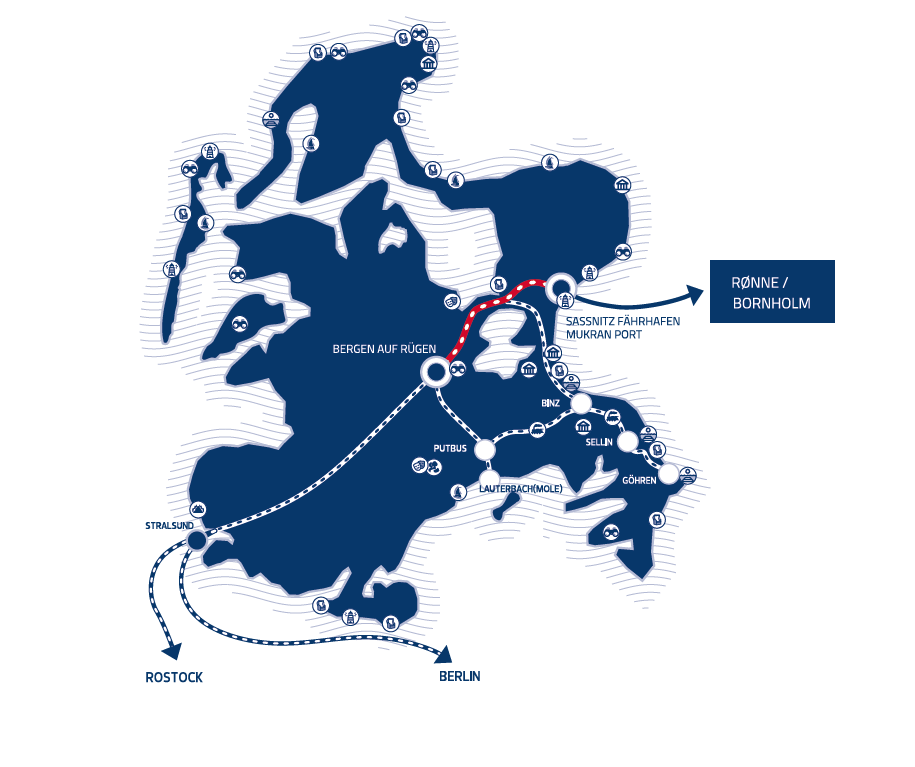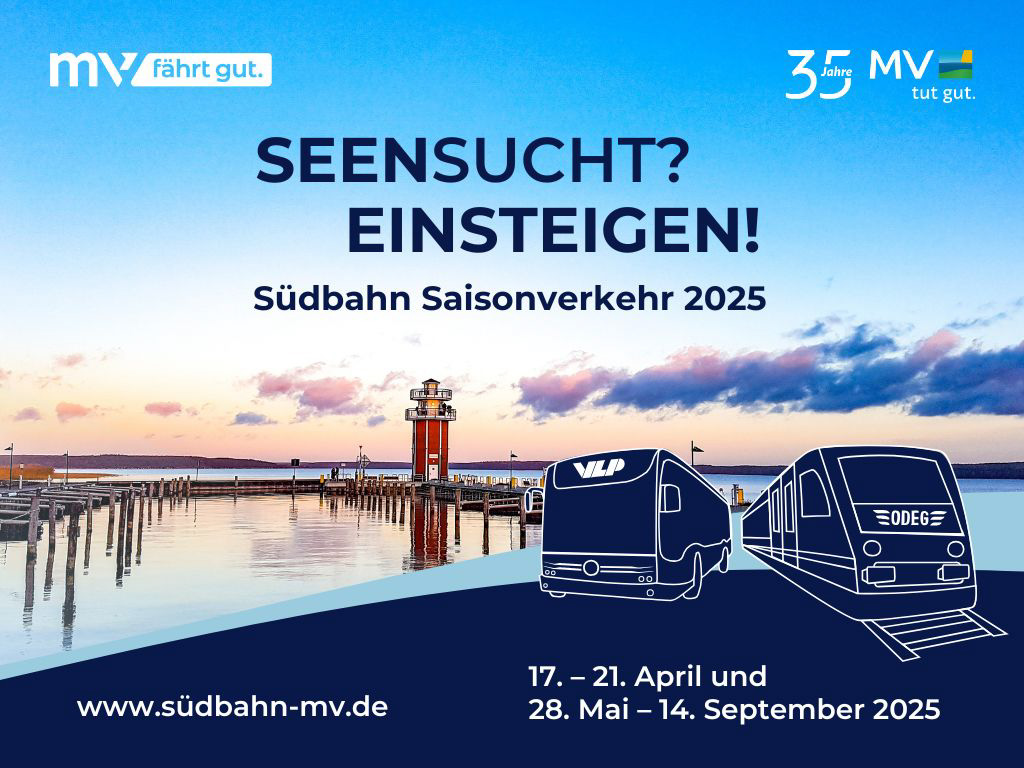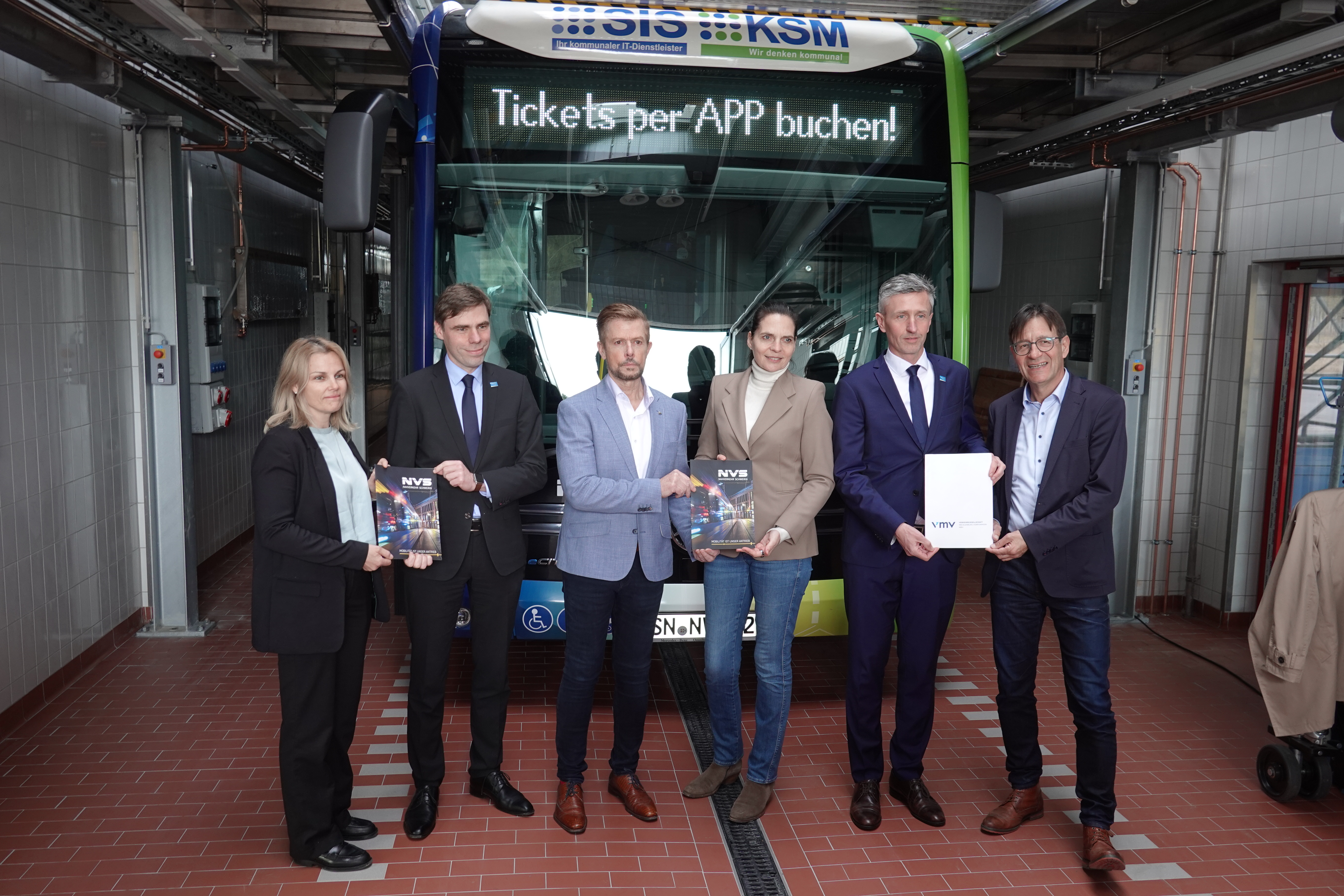Schwerin, 27 November 2023 In November 2023, the federal states of Mecklenburg-Western Pomerania, Schleswig-Holstein and the Free Hanseatic City of Hamburg made their decision to award the contract for the high-demand Regional Express Line 1 (RE1), which connects Mecklenburg-Western Pomerania with the Hamburg metropolitan region. In the award procedure, which has been running since October 2022, the operator was sought from December 2027 over a period of 14 timetable years until 2041. This also affects services to/from Lübeck, which will be converted to environmentally friendly electric traction from 12/2029 following infrastructure expansion as part of the Fehmarnbelt hinterland connection and will further enhance the OSTA sub-network with the new RE2 Rostock - Lübeck and RE4 Schwerin - Lübeck lines. Following the start of the contract with 3.4 million train kilometres, at least around 4.3 million train kilometres per year are to be provided for the three northern states when fully operational from 2030.
In July 2023, two bidders submitted their bids for transport services on the OSTA sub-network, which have been reviewed and evaluated in recent months. Now that the deadline for appeals has expired, it is clear that the contract can be awarded on time: The winner is DB Regio AG with its bid.
In accordance with the requirements of the federal states, the main focus of the service is the conversion of operations from the previous locomotive-hauled double-decker trains to new, predominantly double-decker multiple-unit trains, which will be used in the sizes three-part, five-part and eight-part in future.
DB Regio AG will use Alstom Coradia Stream trains for this purpose in future. In order to be prepared for further increases in demand following the experience with the Deutschlandticket, the federal states are commissioning the option for one additional vehicle each at the same time as the contract is awarded, so that a fleet of 18 trains (9 five-car and 9 three-car trains) can be procured from the outset. These trains will now also run between Hamburg and Büchen at peak times in a combination of five-car and three-car units with more than 720 full seats in order to enable higher capacities in the centre of the metropolitan region. For the foreseeable future, only five-car trains (RE1) and three-car trains (RE2, RE4) will be able to run into Mecklenburg-Western Pomerania due to limited platform lengths. Platform development programmes require a targeted exchange with the infrastructure operators, which the federal states will continue.
The award result takes into account numerous innovations such as two-hourly connections between Rostock and Lübeck (RE2) and Schwerin and Lübeck (RE4) as well as more half-hourly services and a night service between Hamburg and Büchen. There will be further service improvements on the route between Schwerin and Rostock. In line with the new RE2 and RE4 lines as well as long-distance services, there will be approximately one hourly service per day (in some cases with a change in Bad Kleinen).
A holistic vehicle equipment concept including a fresh vehicle design inside and out in line with the Mecklenburg-Vorpommern state concept and WLAN will ensure greater comfort. Digitalisation and real-time information will play a central role in the areas of passenger information and sales.
The proven deployment of train attendants on all train journeys will be maintained. In addition, security personnel will be present more frequently on the OSTA sub-network.
"We want and need to equip ourselves for the future with the cross-border OSTA sub-network. One of our aims is to expand capacity for all user groups with new, modern vehicles and more frequent services - more environmentally friendly mobility that is suitable for everyday use and connects our northern German regions," says Reinhard Meyer, Minister for Economic Affairs, Infrastructure, Tourism and Labour.
Dr Anjes Tjarks, Hamburg's Senator for Transport and Mobility Transition: "The mobility transition in Hamburg will only succeed if the mobility transition in the entire metropolitan region succeeds. The Deutschlandticket has also significantly increased demand for regional transport. It is therefore a good signal that we are working together with Schleswig-Holstein and Mecklenburg-Western Pomerania to further strengthen the Hanseexpress between Hamburg and Rostock. We will offer passengers a high-quality service and increase overall capacity on the routes to more than 4 million train kilometres per year."
Claus Ruhe Madsen, Minister for Economic Affairs, Transport, Labour, Technology and Tourism for the state of Schleswig-Holstein: "We are delighted with the result of the tender, which also means significant improvements for passengers in Schleswig-Holstein. The up to eight-car vehicles offer significantly higher seating capacity and greater travelling comfort. With more half-hourly services and a night service, Büchen will be better connected to Hamburg. This makes it even more attractive to switch from car to train. This is how the mobility transition works."






